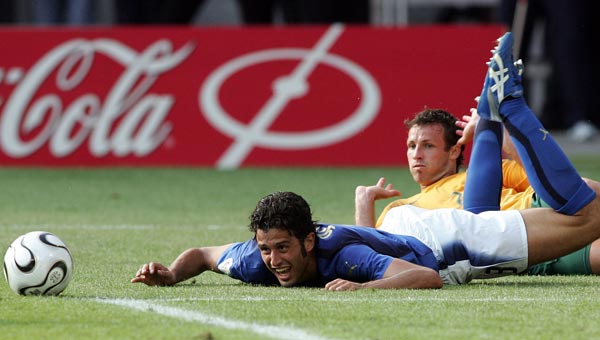Maureen Dowd uses her column today to share how much she sympathizes with Anna Wintour, the thinly fictionalized protagonist of “The Devil Wears Prada,” and excoriate the author of that book, Lauren Weisberger.
On the first front, Dowd says that the Wintour character in the film doesn’t sound unreasonable in her expectations of what an assistant should do.
Is it so wrong of Miranda to expect her assistant, Andy Sachs (played by Anne Hathaway), to know how to spell Gabbana, reach Donatella and ban freesia? Is it so bad to want help getting a warm rhubarb compote for Michael Kors? Or to have an assistant who knows what an eyelash curler is?
Dowd then notes that she herself once asked her assistant to choose her cell phone ring, “50 Cent’s “In Da Club” or the Fox Sunday football theme?”
Which is just the kind of personal detail that makes Dowd so annoying: It’s irrelevant and shouts, “Look at me! Look at me!” And it’s schizophrenic. I’m a guy’s girl, she saysâI listen to rap and watch football. But I’m helpless at technology, she admits, fluttering her eyebrows. Can’t you please help me with my phone?
In any case, Dowd truly sympathizes with Wintour over Weinberger because ” it just seems better, this time, to side with the Wicked Stepmother than the opportunistic Cinderella.”
Weinberger’s an sleazeball, Dowd argues. “This Cinderella’s primary value turned out to be voyeurism, profiting by keeping her nose to the glass and poaching off her glamorous former boss’s life.”
She recycles the in-vogue (no pun intended) term for “The Devil…”, calling it a “hiss-and-tell.” Then she adds that “Lauren Weisberger plotted to be rich and famous by writing about how she didn’t want to become Anna Wintour….[But] it’s more admirable to be the beast to which the parasite attaches itself than to be the parasite.
Well, this is singularly harsh stuff, and, I think, unfair.
I write, of course, as a colleague of a famous person who ultimately wrote a book about that person. It’s a very different kind of book than “The Devil Wears Prada,” of courseâwarm and complimentary, I think/hope. Nonetheless, some pundits criticized me on the same grounds: That plebeians who come to know rich and famous and powerful people should not disclose their secrets.
Nonetheless, I think I can be relatively objective.
First of all, I seriously doubt that Lauren Weisberger “plotted to be rich and famous” by writing a novel. Think for a minute about American culture these days, and who gets to be rich and famous. Writing novels isn’t exactly your ticket to fame and fortune. More likely she’s a young woman who wanted to write a book and wrote about what she knew. She has since gone on to produce a second book which, I gather, while not great literature, shows that she has some talent for the genre.
Second, Anna Wintour has, in her world, an immense amount of power, lots of money, the resources of a giant publishing company behind her…and by all accounts she is imperious and cruel to people who work for her. She also promotes anorexia, both in the pages of her magazine and in her body, and the destruction of animals for their fur.
If you have power and you don’t use it for good, it seems to me, you open yourself up to people pointing this out. Especially when you treat those people terribly merely because you can. Or worse: Because in the value-void world of fashion, it actually adds to your reputation to act like a total bitch.
The process of writing a “hiss-and-tell” may not be pretty, nor the motives perfect. But these books do serve a function: they promote democracy in a country where celebrity is increasingly blurred with royalty. (And if you don’t believe me, check out pictures of Anna Wintour at a fashion show.) They are what you might call a cultural check-and-balance.
Maureen Dowd has grown so far removed from the lower orders that she has forgotten thisâforgotten what it’s like to have no power, no clout, no money. For a New York Times columnist, that’s both a shame and a problem.
It’s unfortunate that Dowd doesn’t realize this; that she has no self-consciousness. If she did, she might realize that her description of Weisbergerâthe parasite attaching itself to the beastâis, some would say, a pretty good description of journalists. If Maureen Dowd really wants to see the devil in Prada, she should look in the mirror.
![[Lawrence Summers]](../../public/resources/images/HC-EO679_Summer_20051026033647.gif)
